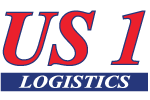The freight broker agent profession is an exciting and potentially lucrative career in the logistics and trucking industries. Whether you’re new to the field or looking to  sharpen your skills, there are several essential steps and qualifications you’ll need to succeed. As companies are actively seeking freight broker agents and the demand for efficient logistics continues to grow, now is a great time to start a career in this field.
sharpen your skills, there are several essential steps and qualifications you’ll need to succeed. As companies are actively seeking freight broker agents and the demand for efficient logistics continues to grow, now is a great time to start a career in this field.
In this guide, we’ll walk through the steps required to become a successful freight broker agent, highlighting the key skills you need to develop, and how to take advantage of the freight broker agent job opportunities available today.
1. Understand the Freight Broker Agent Role
Before diving into the process, it’s important to fully understand what a freight broker agent does. In this role, you’ll serve as a middleman between shippers (the companies that need to move products) and carriers (trucking companies or other transport providers). Your job is to connect shippers with the right carriers to ensure goods are transported efficiently and cost-effectively.
Freight brokers operate under their own brokerage authority, while freight broker agents typically work under the authority of a licensed broker. As a freight agent, you’ll negotiate rates, coordinate shipments, and manage relationships with carriers and clients.
2. Gain Industry Knowledge
One of the first steps in becoming a successful freight broker agent is gaining a solid understanding of the logistics and trucking industries. You need to be familiar with how freight moves, including the different modes of transportation (truck, rail, air, and sea), and how the freight market fluctuates.
Additionally, you should understand key concepts such as:
- Freight rates and how they are determined.
- The importance of building relationships with trucking companies looking for agents.
- How intermodal transportation works.
Taking freight broker agent training courses or attending logistics seminars can help you get a strong grasp of the basics.
3. Develop Essential Skills
To excel as a freight broker agent, there are several key skills you’ll need to develop:
- Sales and Negotiation Skills: Much of your success will depend on your ability to negotiate favorable rates with carriers and close deals with shippers. Being able to sell your services and build strong relationships is crucial.
- Communication Skills: You’ll need to maintain clear and constant communication with shippers and carriers. Good communication ensures smooth operations, timely deliveries, and client satisfaction.
- Attention to Detail: Managing multiple shipments, routes, and schedules requires a sharp eye for detail. A single mistake in paperwork or communication can result in costly delays.
- Problem-Solving Abilities: Freight transportation doesn’t always go as planned. Being able to quickly resolve issues like delayed shipments, rerouting, or finding available carriers on short notice will make you invaluable to your clients.
Tip: Start developing these skills by practicing negotiations and networking with trucking agents or freight brokers looking for agents.
4. Choose Between Independent and Employed Options
As a freight broker agent, you have two primary options for employment:
Independent Freight Agent Jobs
Many professionals opt to work as independent freight agents, where they have more flexibility and the potential to earn higher commissions. Working independently means you’ll need to partner with a freight broker who holds a license.
Independent agents often seek out freight broker agent opportunities where they have the freedom to build their own client base, set their schedule, and manage their business. This option is best suited for those who are self-motivated and willing to take on the challenges of running their own operations.
Freight Broker Agent Jobs with a Firm
Alternatively, you can seek employment with a freight brokerage firm. Many trucking companies offer agent programs that provide training, support, and access to a broad network of shippers and carriers. These firms often have established processes, which can be helpful if you’re just starting out in the industry.
Tip: If you’re looking for stability and support, trucking companies looking for agents or brokerage firms may offer structured freight broker agent jobs that provide resources, tools, and a steady flow of clients.
5. Secure the Right Connections
Success in this industry is built on relationships. You’ll need to actively network with freight agents, brokers, and trucking companies to build a book of business. Your network will be the foundation for finding freight agent job opportunities and securing contracts with shippers and carriers.
Consider joining industry associations, attending logistics conferences, or connecting with other agents on professional platforms like LinkedIn.
Tip: Make use of freight agent broker platforms and job boards that regularly post freight broker agent jobs to stay up-to-date with the latest opportunities.
6. Use Technology to Your Advantage
In today’s fast-paced logistics environment, technology plays a huge role in ensuring success. Using freight management systems (FMS), load boards, and transportation management software (TMS) will streamline your operations. These tools help you match shippers with carriers, track shipments in real-time, and manage contracts and payments efficiently.
The best freight broker agents leverage these technologies to save time, reduce errors, and provide better service to their clients.
7. Stay Resilient and Committed
The logistics industry can be competitive and sometimes unpredictable. As a freight broker agent, you may face challenges like fluctuating market rates, unexpected delays, or difficulty finding reliable carriers. Staying resilient and committed to your goals will help you navigate these ups and downs.
In this commission-based industry, it’s important to be proactive and constantly look for freight agent opportunities. Be prepared to put in the effort to build your client list and deliver excellent service to shippers and carriers.
8. Start Your Search for the Best Opportunities
Once you’ve honed your skills and built a strong understanding of the industry, it’s time to start searching for the best freight broker agent job opportunities. Look for companies that align with your goals, whether it’s working as an independent agent or joining a firm.
Popular platforms for finding freight broker agents wanted include:
- Indeed
- Freight broker job boards
- LinkedIn networking
- Freight agent brokerage firms
Remember to also keep an eye on trucking companies’ agent programs, which can provide excellent training and job opportunities for agents just starting out.
Becoming a successful freight broker agent takes dedication, industry knowledge, and the right skill set. By understanding the role, developing strong sales and negotiation skills, and networking with freight agents and trucking companies, you can carve out a rewarding career in this dynamic field.
Whether you choose to work independently or with a firm, the key to long-term success is staying resilient, leveraging technology, and constantly seeking new freight broker agent jobs that align with your goals.
Tip: As the logistics industry grows, so do the opportunities. Make sure to stay updated on the latest freight agent opportunities and trends in the market to position yourself as a top agent in the industry.




Recent Comments